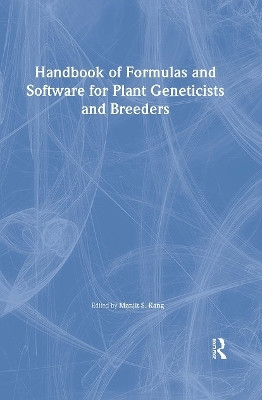Handbook of Formulas and Software for Plant Geneticists and Breeders(English, Hardcover, unknown)
Quick Overview
Product Price Comparison
A simple solution to complicated statistical techniques and formulas! The Handbook of Formulas and Software for Plant Geneticists and Breeders is an up-to-date reference source that eliminates the need for hand calculations of complicated genetic formulas and equations. Contributions from members of the C1 Division of the Crop Science Society of America include computer program codes not found in Statistical Analysis System (SAS) and other commonly available statistical packages. The book provides an invaluable shortcut to sorting through piles of literature in search of programs that may have been published in abbreviated forms or never at all. The Handbook of Formulas and Software for Plant Geneticists and Breeders puts full-fledged program codes of specialized statistical and genetics-related software programs at your fingertips. It shows practicing geneticists, breeders, and students how to use specialized software through practical examples. The book is an excellent research and teaching tool in quantitative genetics and plant breeding, providing definitions of key terms and information on how to obtain desired software and key references. It also includes an extensive listing of programs available for linkage and mapping software that can be accessed through the Internet. The Handbook of Formulas and Software for Plant Geneticists and Breeders presents, among others, programs related to: genotype-by-environmental interaction (GEI) and stability analysis genetic diversity estimation best linear unbiased predictors (BLUPs) principal component and additive main effects and multiplicative interaction (AMMI) analyses quantitative trait loci -by-environment (QTL x E) analysis GGE biplot analysis diallel analyses path analysis trend analysis field plot technique The Handbook of Formulas and Software for Plant Geneticists and Breeders is essential for academics and researchers working in genetics, breeding, and genomics, and as a supplement for coursework in quantitative genetics and plant breeding.


